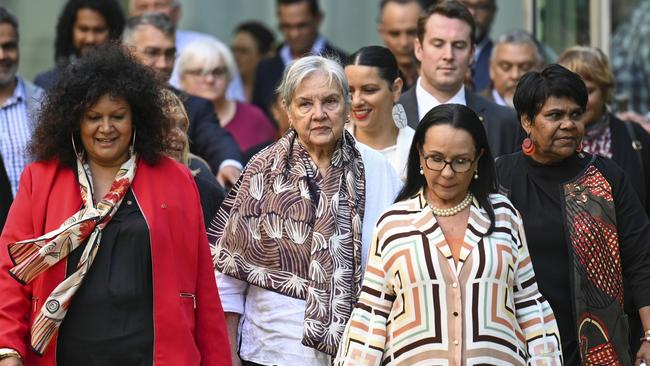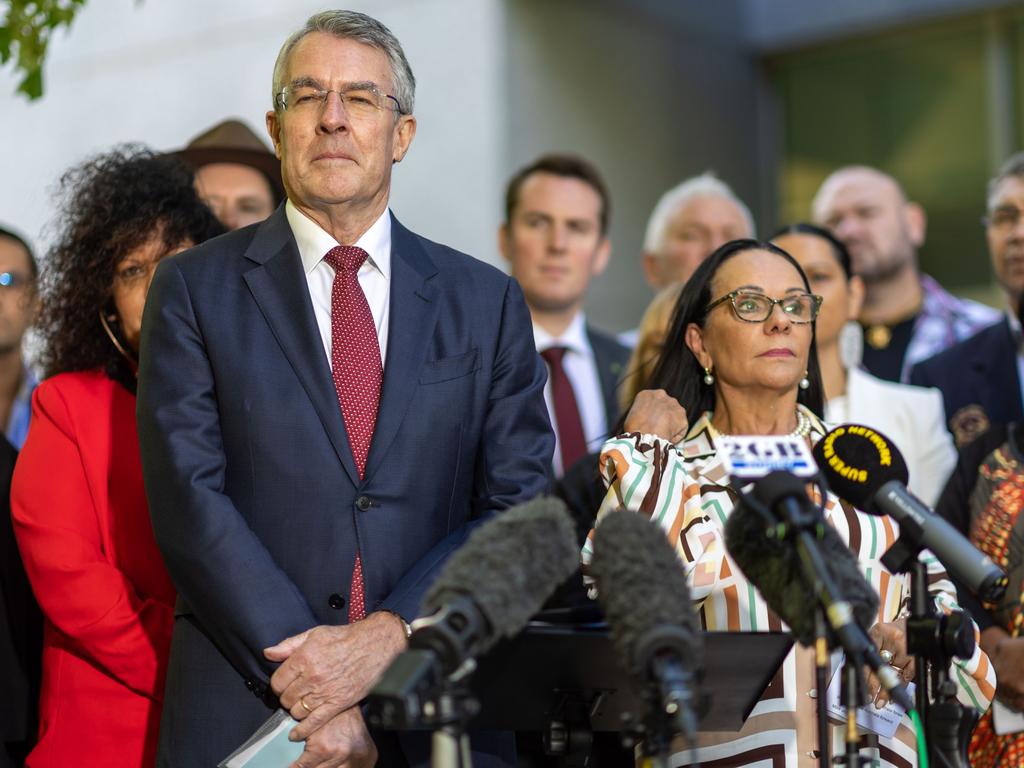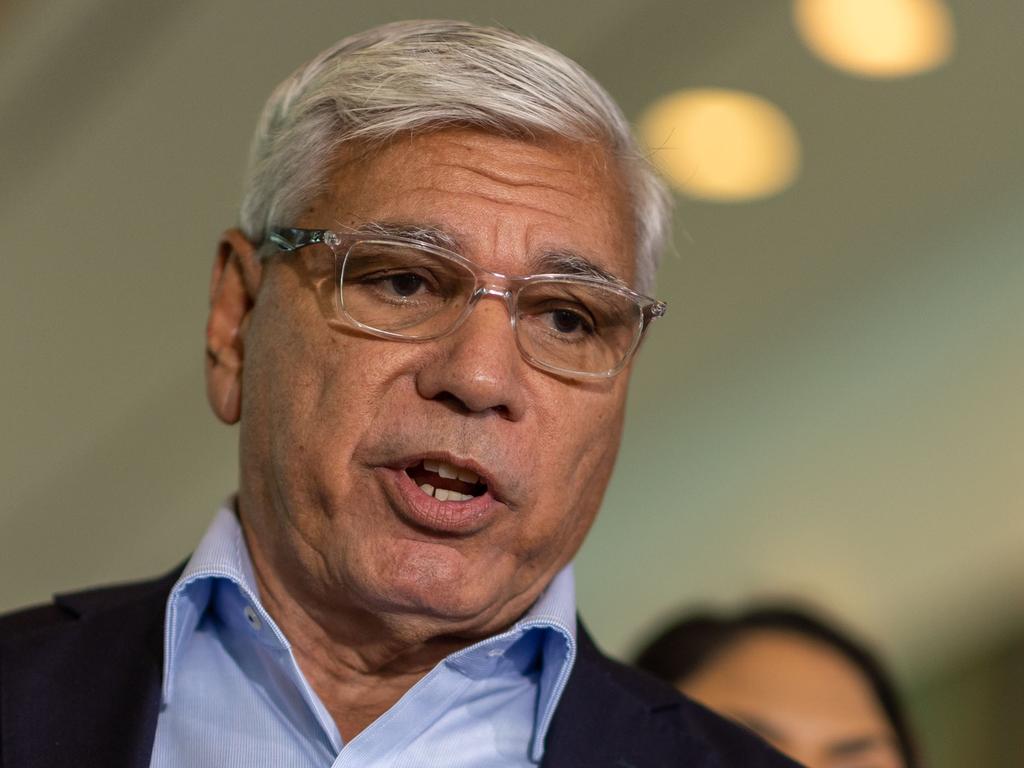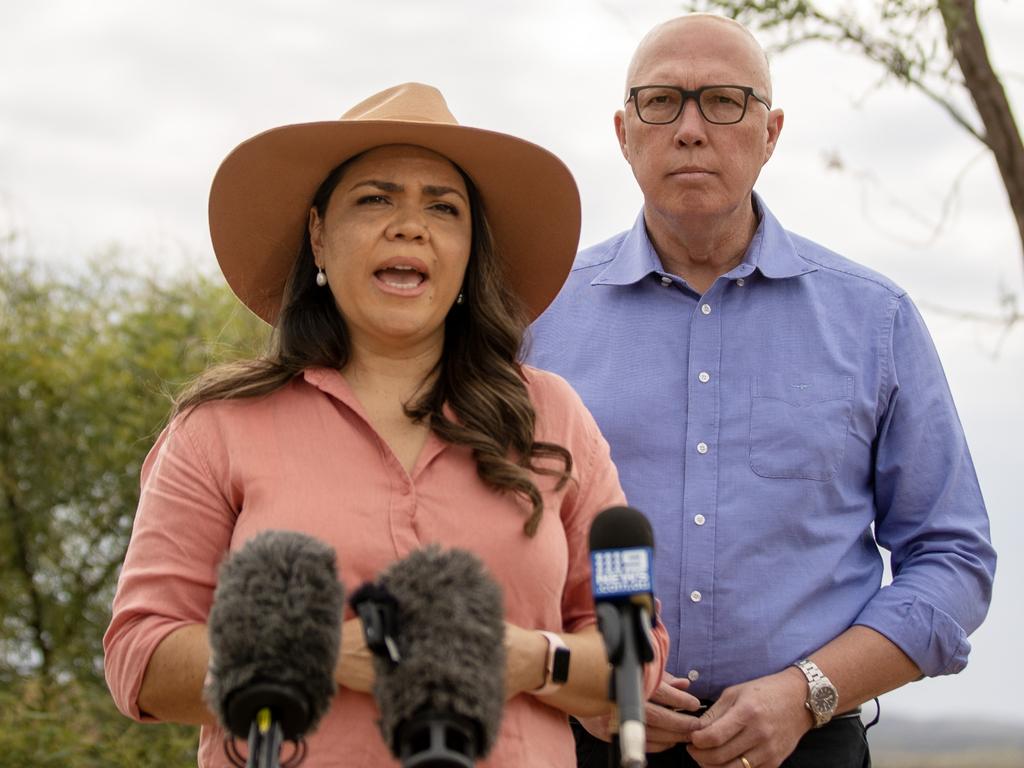It’s foolish to gamble with Australia’s Constitution over the Indigenous voice to parliament
The legal consequences of the current Indigenous voice to parliament drafting are hotly disputed and therefore the ultimate powers and impact of the constitutional amendment are a guess.

If you believe Bret Walker SC, there’s nothing to see here: concerns about the voice, or activists, using the courts to extract leverage were “too silly for words”. Professor Greg Craven, who is in favour of a voice but not this one, has previously called it “fatally flawed” and a “ruthless con job”. There are, of course, a range of views in between. Added to the mix is the Solicitor-General’s advice released on Friday. Nothing that follows is altered by that advice.
The growing number of hotly contested issues surrounding the voice mean that Australians are being asked to take a punt on what the voice does to our system of governance. Frankly, it is grossly irresponsible for the Albanese government to force Australians to guess what the result of their vote will be, particularly when it would be easy for it to amend the wording to eliminate the guess work.
The government’s refusal to eliminate the risks with clear and explicit wording only fuels the fears of those who, like me, take at face value the promises of influential academic lawyers such as Professor Gabrielle Appleby that the voice can be used to install co-government. Why should marking our ballot paper on referendum day be the electoral equivalent of going to the casino? Even if there is a winner, we have no real clue who that will be.
So, what are we betting on? Concerned lawyers I have spoken with believe the proposed wording gives the voice a number of extremely powerful rights. They are rights that flow directly from the second sentence of the proposed amendment and are therefore immune from control or limitation under laws passed by parliament under the third sentence of the proposed amendment (which is expressly made “subject to” the second sentence). Only the unelected High Court can interpret or reinterpret them, or vary or modify them.
These are the rights that this newly constituted Indigenous body would likely demand from departments and agencies on the first day of its existence, as described in my article earlier this month. They are the rights that give the voice powerful rights of co-government. They may force the executive government of Australia to negotiate almost any action it wishes to take with the voice before it can take that action.
Even if you take the Bret Walker view of the world, the best that can be said is that the wording gives rise to profound disagreement and uncertainty. Even Walker would have to accept that it is all a punt on how the High Court is feeling on the day these issues are litigated.
Walker’s gruff certainty now about what the High Court would or would not do sits very oddly indeed with many other lawyers who are far less certain. That is the nature of new, untested laws, particularly when they are put in the Constitution: we don’t always know where they will take us. So why are we being asked to gamble with the Constitution?
BEST OF VOICE OPINION: All our commentators weigh in on the Indigenous voice to parliament
I suspect that if the talented Mr Walker is briefed to act for the voice at some point in the future, he would deliver a very convincing argument in court to argue for these very same rights for the voice. This legal miasma cannot continue. If the government wants the referendum to have any legitimacy at all, it must come clean and tell the Australian people the nature of the rights being created. Or if it says these powerful co-government rights are not created, it should amend the proposed wording to explicitly say so. No dissembling, duck shoving or weasel words. If the government will not amend the wording to explicitly negate these rights, voters should assume the voice has all these rights and more.
The rights Inquirer has been told will be created are as follows:
1. Advance notice: the voice has the right to demand advance notice from every government department, agency or body of any policy or action proposed by that body which “relates to ATSI peoples”. It must be given sufficient advance notice to enable it to properly analyse the proposal and make representations on it, if it wishes. Its right to advance notice is not limited to matters of substance or importance. Neither is there an exception for emergencies – the voice must still be given advance notice sufficient to enable it to consider the matter.
The relevant government body will be required to tell the voice of every proposal by that body that “relates to” ATSI people without trying to filter or censor those matters by reference to size, urgency or any other consideration. As many people have commented, including members of the government’s expert working group, matters that “relate to” ATSI people are not limited to matters which relate directly to ATSI people and the government cannot claim it does not apply to matters such as tax, foreign affairs or defence. The only safe assumption for a government body to make is that virtually all its actions or proposals will “relate to” ATSI people.
2. Full information: the voice has a right to demand that any government department or entity proposing something that “relates to” ATSI people give it all the information it could want in order to understand the proposal and, if desired, make representations on it. In practice that is likely to mean the voice is entitled to all the information in the possession of the relevant government body, and certainly, at a minimum, all the information in the possession of the ultimate decision maker. Constitutionally, the government will have no right to deny the voice such information on confidentiality or national security grounds.
3. Resources and money: the voice will have the right to demand sufficient resources and budget to ensure it can properly analyse proposals and make representations if desired.
4. Proper consideration: while the government will have no duty to agree with any representations made by the voice, it will have a constitutional duty to give them fair consideration. All the usual principles of procedural fairness and administrative law will apply so that the government will not be able to ignore representations on irrelevant, improper or incorrect grounds.
5. Amendments: if the government amends a proposal, it must give voice the right to consider the amended proposal afresh. This may restart the clock for the voice to consider it anew.
6. Right to challenge decisions in court: while the Calma-Langton report, and numerous academics, originally assured us the voice would be non-justiciable, we now know this is not the case. The voice, and many other interested persons, will certainly have standing under section 75(v) of the Constitution to challenge the lawfulness and validity of laws and government action taken allegedly in breach of any of the rights described above or any others flowing from the proposed constitutional amendment. In many ways this is the most powerful right the voice will confer – not merely on the voice itself but on third party activists. While the voice has no legal veto on laws or government action, the right to litigate will confer on the voice and on activists a very powerful de facto veto by virtue of potentially delaying action.
Voters deserve clear and unqualified information on these (and many other) issues. Our Constitution should not be a matter of “heads or tails?”








The debate about the Indigenous voice to parliament has come down to voters’ appetite for risk. Some people like to gamble, or sky dive, or take other risks. Other people have a lower threshold for risk. For those watching leading Australian lawyers give evidence at the parliamentary committee this week, there is only one conclusion. The legal consequences of the current drafting are hotly disputed and therefore the ultimate powers and impact of the voice are a guess.